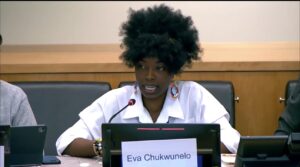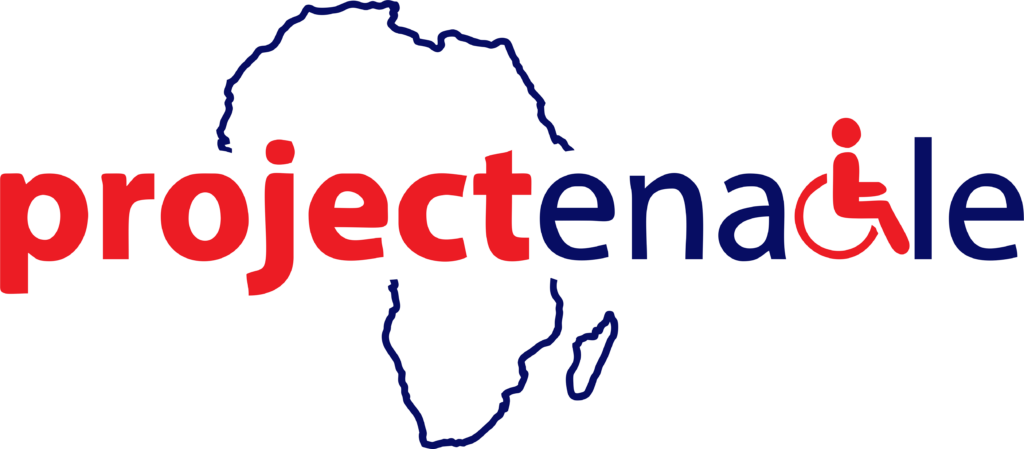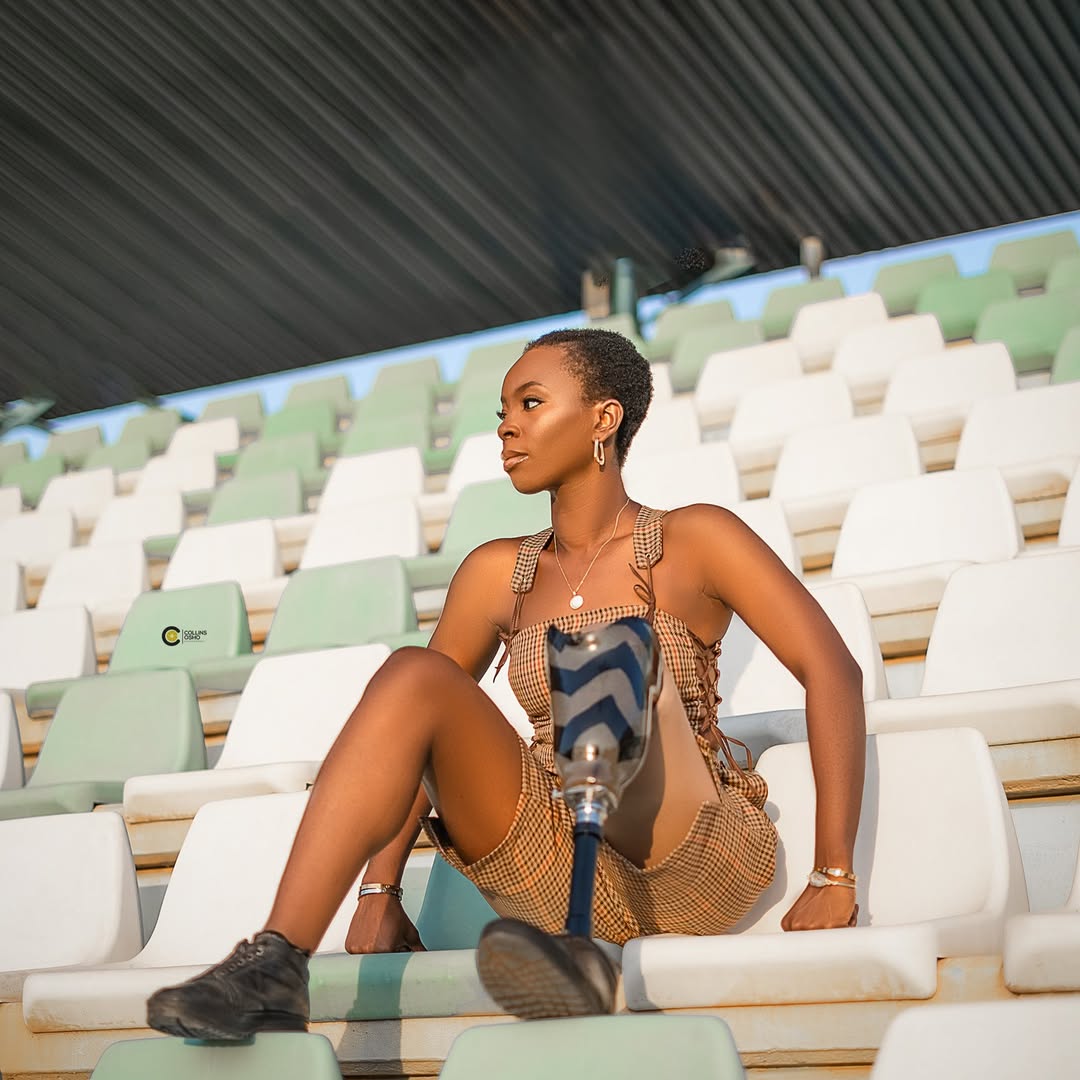INTRODUCTION
Eva Chisom Chukwunelo is an innovative disability inclusion advocate, a Mandela Washington alumna, and the Co-founder of Mobility Clinic Ltd. She is committed to reshaping narratives about disability, fostering inclusion, and empowering young people, especially girls and women with disabilities, through education, advocacy, and storytelling.

Her advocacy extends to global platforms—she has spoken at high-level panels, including the United Nations, championing disability-inclusive policies and gender justice. Eva’s work is not just about representation but systemic change, ensuring inclusion extends beyond tokenism to real opportunities.
Known for her fearless and unconventional approach, Eva embodies the Amputee Rebel spirit, defying limitations, embracing creativity, and inspiring the next generation of leaders and changemakers.
At what point did you decide to champion the disability cause?
I decided to champion the disability cause in 2019, eight years after acquiring it. For years, I was hidden, ashamed, afraid, and confused. However, I met a woman, someone without a disability, who saw something in me that I didn’t see in myself. She introduced me to disability advocacy, and that moment changed everything.
My drive comes from wanting to inspire others with disabilities who are afraid to let the world see them. I know what it feels like to hide, but I also know the freedom that comes with embracing who you are.
Beyond advocacy, I want the world to know that even with our scars open, we can still shine. Standing in the light brings so much.
How did you manage the major challenge(s) you faced since your advocacy for disability inclusion?
Accessibility was not my biggest challenge; I am privileged to have it. But discrimination—especially in the workplace—is a different story. I struggled to find work environments that did not see me as just another number to tick the inclusion box. I have been told to hide my prosthesis, and at times, I have felt like a trophy, paraded around to showcase diversity without truly being valued.
Beyond external challenges, I have wrestled with self-doubt and impostor syndrome, especially in spaces where I know persons with disabilities are not represented. It is a daily battle to remind myself that I am enough and that I have something valuable to offer. Emotions are a constant part of my journey—I feel underestimated and, sometimes, tired of fighting those feelings. The beautiful thing is that I always manage to overcome them.
I’ve also struggled to secure funding for projects I wanted to implement. So, I focused on what I could control: writing, photography, and speaking.
What keeps me motivated is resilience. I refuse to accept limitations. But beyond that, I wanted to give my parents something to be proud of. Seeing their once-active and healthy child acquire a disability must have been daunting for them. I also wanted to inspire my siblings to be better. And above all, my faith in God is my anchor.
Are Organizations of Persons with disabilities doing enough to shift the narrative from pity to empowerment? What more can be done?
Yes, Organizations of Persons with Disabilities (OPDs) are doing a lot to shift the narrative from pity to empowerment. Thanks to their relentless advocacy, we now have the Discrimination Against Persons with Disabilities (Prohibition) Act and other legal frameworks meant to protect our rights.
But at this stage, we need to focus on implementation. In Nigeria, discrimination often remains unpunished because enforcement remains weak. If something unjust happens, I may not report it because, oftentimes, the community advises me to “sweep it under the carpet.” That’s the mindset we must change.
I believe the biggest game-changer is the media. We underestimate the power of representation in shaping societal attitudes. Disability should not be extraordinary or tragic; it is a part of human diversity.
Movies, TV shows, the news, and social media must stop telling our stories only through the lenses of pity or heroism. We don’t have to be “inspirational” to be visible or valued. We are just everyday people who want to live, work, and contribute to society like everyone else. If we invest in changing how disability is represented in the media, shifting the narrative from pity to empowerment will no longer be a struggle.
If you could change one thing about how disability is perceived globally, what would it be?
I would change the global perception of disability by shifting it away from the extremes of pity or inspiration, and toward recognizing it as a natural part of human diversity. Disability should be seen as normal, where people with disabilities are acknowledged as everyday individuals with the same aspirations, challenges, and potential as anyone else.
Project Enable Africa is a community development initiative that was founded in 2014 to advocate for the rights and empowerment of persons with disabilities in Africa. Project Enable Africa envisions an African continent that is inclusive for persons with disabilities to prosper as we believe that everyone deserves a good quality life and that no one should be discriminated against on the account of their disability.
Project Enable Africa is dedicated to empowering persons with disabilities, championing their rights, and creating an inclusive society where every ability is celebrated. To date, 5,000 persons with disabilities have been reached, 500 youth with disabilities connected to jobs, 50 disability-confident organizations impacted and 1,000 entrepreneurs supported.


